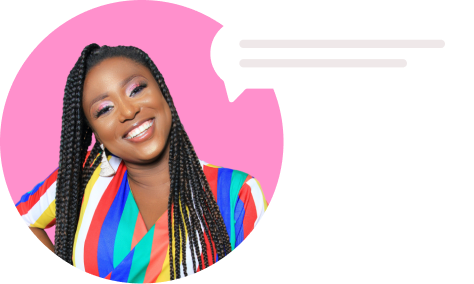Top 15 Mindset Coaching Questions for Breakthrough Moments

In the world of coaching, it's not always about having all the answers. Sometimes, it's about asking the right questions.
Think about it: How often have you seen a client's eyes light up, not when you gave a solution but when you posed a question that unlocked something deep within them? That's the power of potent mindset coaching questions.
The right question, at the right time, can revolutionize how a client thinks. They're the unsung heroes of transformative coaching sessions, guiding clients from being stuck to achieving those much-coveted breakthrough moments.
So, what makes a question transformative? How do you structure a coaching session to harness the full power of these questions? And most importantly, what are those top-tier mindset coaching questions that lead to those "aha!" moments? Dive in as we explore these answers and equip you with tools to elevate your coaching sessions.
Here’s what we’ll be covering in this guide:
What is Mindset Coaching?
Dive into the core of mindset coaching and discover how it stands out in the vast world of coaching.The Essential Role of a Mindset Coach: Solving Key Problems
Uncover the unique challenges a mindset coach tackles, from pesky limiting beliefs to the age-old battle between fixed and growth mindsets.Why is Asking the Right Questions So Crucial?
Learn why the magic often lies in the question, not just the answer, and how this facilitates genuine self-awareness and transformation.Structuring a Mindset Coaching Session for Success
A behind-the-scenes look into orchestrating a session that balances empathy with effectiveness, ensuring every client walks away empowered.Top 15 Mindset Coaching Questions for Breakthroughs
Your go-to list of transformative questions, segmented by theme, ready to catalyze those 'aha!' moments in your sessions.Using the Questions in Practice
Unravel real-world scenarios where these questions shine the brightest, and get tips on tailoring them on the fly.Additional Resources and Recommended Reading
Hungry for more? Dive into this curated list of books, platforms, and resources to fuel your ongoing growth in mindset coaching.
What is Mindset Coaching?
Ever hear the term "mindset" and wonder how it's more than just positive vibes? Enter mindset coaching. This isn't just about happy thoughts; it's about digging into the beliefs and attitudes steering our actions.
In a nutshell? Mindset coaching zeroes in on thought patterns, shifting self-perceptions, and tackling those pesky limiting beliefs. Our mindset—fixed or growth-focused—shapes our resilience, choices, relationships, and outcomes.
Now, you might ask, "Isn't that just like any coaching?" Not quite. While other coaching forms target specific goals—like leadership in executive coaching or fitness in health coaching—mindset coaching adjusts the mental lens, affecting all life areas. Imagine it as the foundation of a house: while other coaches might tweak the decor, mindset coaches ensure the ground is rock-solid.
So, from guiding CEOs to marathon runners, it's clear: It all starts with the mindset. And with the right mindset coaching questions, you're on track for real transformation.
The Essential Role of a Mindset Coach: Solving Key Problems
Mindset coaches are akin to mental fitness trainers, and just as you'd hire a personal trainer to overcome physical challenges, a mindset coach helps clients tackle specific mental hurdles. Let's break down some of these common obstacles:
Limiting Beliefs: Think of these as those pesky mental weeds that stifle growth. They're the internal whispers saying, "I can't," "I'm not good enough," or "It's too risky." A mindset coach doesn't just pluck out these weeds; they help replant with empowering beliefs, turning "I can't" into "I'll find a way."
Fixed vs. Growth Mindset: Popularized by Dr. Carol Dweck, this concept highlights the difference between believing abilities are static (fixed) versus believing they can be developed (growth). A mindset coach assists clients in recognizing where a fixed mindset might limit their potential and guides them toward cultivating a growth mindset, opening doors to endless possibilities.
Self-Sabotaging Behaviors: Ever have those days where you're your own worst enemy? Maybe it's procrastination, negative self-talk, or not setting clear boundaries. These behaviors often stem from deeper mindset issues. A mindset coach shines a light on these patterns, offering strategies to break the cycle and set the stage for success.
A mindset coach isn't just there to offer advice or quick fixes. They provide a roadmap to navigate these challenges, equipping clients with the tools, insights, and, yes, those critical mindset coaching questions to spark true change.
Why is Asking the Right Questions So Crucial?
Questions: simple in form, profound in impact. Ever had a conversation that took a sharp turn simply because someone asked a thought-provoking question? That's the magic we're diving into.
Eliciting Self-Awareness & Facilitating Change
When it comes to personal growth, awareness is the ignition, and change is the journey. By asking the right mindset coaching questions, coaches can prompt clients to uncover insights they might have overlooked.
It's not about providing answers but guiding clients to discover the truths they hold within. And with that awareness? Change isn't just possible; it becomes inevitable.
Surface-level vs. Deep, Probing Questions
Let's paint a picture. Surface-level questions are like skimming the surface of a serene lake—pleasant, but you only see what's on top. On the flip side, deep, probing questions dive into the lake's depths, revealing hidden treasures.
A question like, "Did you have a good day?" might fetch a simple yes or no. But ask, "What challenged you today, and what did you learn from it?" and you're inviting introspection and growth. The deeper the question, the more profound the reflection, and the richer the outcome.
In the realm of coaching, the potency of your questions can be the difference between a momentary realization and a life-altering epiphany. By integrating transformative mindset coaching questions into your sessions, you're not just scratching the surface—you're digging deep, striking gold, and setting the stage for lasting change.
Structuring a Mindset Coaching Session for Success
Rolling out the red carpet isn't just for Hollywood. In a coaching session, setting the stage right can turn an ordinary chat into a transformative dialogue. Here's how to craft that award-winning session:
1. Setting the Tone and creating a Safe Space
Before diving into those deep mindset coaching questions, creating an environment where clients feel safe and heard is paramount. This means ensuring confidentiality, fostering a judgment-free zone, and establishing trust. Picture it like preparing the soil before planting a seed; the better the environment, the more vibrant the growth.
2. Balancing Listening with Questioning
While we're on the topic of mindset coaching questions, it's vital to remember that coaching isn't an interrogation. It's a dance between listening and questioning. Sometimes, the most powerful thing a coach can do is stay silent, allowing the client to process, reflect, and speak. The art lies in knowing when to pose a question and when to simply lend a listening ear.
3. Significance of Follow-Ups and Action Items
Imagine having a groundbreaking revelation and then... nothing. To ensure that insights translate into actions, it's crucial to wrap up each session with clear follow-ups and action items. This could be tasks, exercises, or even reflective mindset coaching questions to ponder. The goal? To keep the momentum going, ensuring that every epiphany becomes a stepping stone toward tangible change.
In sum, a successful mindset coaching session isn't just about what's discussed but how it's discussed. And with the right structure in place, you're not just hosting a conversation; you're orchestrating a symphony of growth and transformation.
Top 15 Mindset Coaching Questions for Breakthroughs
A masterful chef knows the power of key ingredients. Similarly, an adept coach understands that some questions can unearth profound insights. Let's dive into these transformative queries, categorized by the mindset challenges they're primed to address:
Challenging Limiting Beliefs
1. "What would you attempt if you knew you couldn't fail?"
This question invites clients to think beyond their self-imposed boundaries and imagine a world without limitations. It's a gateway to understanding what holds them back and what they genuinely desire.
2. "If your inner critic had a face, what would it look like? What would you say to it?"
Personifying that nagging self-doubt allows clients to confront it directly, opening a dialogue about the sources of their insecurities and strategies to counteract them.
3. "Whose opinion of you holds too much weight in your decisions?"
By pinpointing external influences, clients can better discern their true desires from societal or familial expectations.
4. "What's one belief holding you back, and how did you come to accept it as true?"
This probes the origins of limiting beliefs, laying the groundwork for challenging and redefining them.
5. "How would you act differently if you believed the opposite of that limiting belief?"
A chance for clients to explore alternative narratives, envisioning a world without their current constraints.
Cultivating a Growth Mindset
6. "Can you think of a time when a setback paved the way for a future success?"
By reflecting on past resilience, clients can begin to see challenges not as dead-ends but as detours that might lead to unexpected rewards.
7. "What's one skill you once believed you couldn't master but eventually did?"
This question reinforces the idea that abilities can be developed over time, highlighting the power of perseverance and adaptability.
8. "How would you coach a friend who faced a similar challenge?"
By advising a 'friend,' clients often tap into the wisdom they fail to apply to themselves.
9. "What's a recent feedback you received, and how can you use it to grow?"
Use this framing to emphasize the constructive use of feedback for personal development.
10. "What does a growth mindset look like in your current challenge?"
This question aims to shift focus from fixed beliefs to potential areas of development.
Tackling Self-Sabotaging Behaviors
11. "What would happen if you replaced 'I have to' with 'I choose to' in your daily language?"
Words are powerful. This shift in phrasing empowers clients to see their actions as choices, not obligations, fostering a sense of control and purpose.
12. "Can you pinpoint a recurring obstacle that surfaces each time you're nearing a goal?"
Recognizing patterns in self-sabotage is the first step toward breaking them. This question guides clients to assess and reframe their actions and reactions to align with their aspirations better.
13. "When do you find yourself feeling the most resistant or defensive, and why?"
Help your client identify triggers and the underlying reasons for self-sabotaging reactions.
14. "What's one thing you often procrastinate on, and what fear might be linked to it?"
Uncover the ties between procrastination and potential underlying anxieties to boost your client's success.
15. "If you were to imagine a world where you couldn't fail, what's one habit you'd immediately drop?"
Use this question to push clients to evaluate habits that may not serve their broader goals.
With these mindset coaching questions at your fingertips, you're equipped to guide a conversation and navigate the deep waters of transformation.
Using the Questions in Practice
Facing Major Life Transitions:
Imagine a client navigating a career change, retirement, or becoming a parent. Asking, "What would you attempt if you knew you couldn't fail?" could reveal hidden desires or fears, shedding light on their genuine aspirations versus societal pressures.
Dealing with Performance Pressure:
For a client battling imposter syndrome or facing high stakes in their professional life, "Whose opinion of you holds too much weight in your decisions?" can identify external influences, helping them distinguish between their true values and external expectations.
Preparing for Big Projects or Ventures:
If a client's about to launch a startup or undertake a significant project, "What's one belief that's holding you back, and how did you come to accept it as true?" can help pinpoint and challenge limiting beliefs that might sabotage their progress.
Recovery from Setbacks:
After a failed project or personal setback, "Can you think of a time when a setback paved the way for a future success?" can reignite hope and foster resilience.
Overcoming Procrastination or Inaction:
For clients stuck in a cycle of inactivity, "When do you find yourself feeling the most resistant or defensive, and why?" can unveil the fears or misconceptions stalling their progress.
Adapting Questions Based on the Client’s Response and Needs:
One size rarely fits all. Your client's responses might sometimes require a little on-the-fly adaptation. Here's how you can master that art:
Dive Deeper: If a client's answer is vague or surface-level, follow up with probing questions like, "Can you tell me more about that?" or "What makes you feel that way?"
Reflect Their Words: Echoing what they've said, such as, "You mentioned feeling overwhelmed. What does 'overwhelmed' look like for you?" can offer clarity and encourage deeper introspection.
Adjust the Angle: If a question doesn't resonate, pivot slightly. For instance, if they struggle with the concept of a growth mindset, ask, "How would you advise a close friend in your situation?"
Check-In on Emotions: Emotions can be telling. Questions like, "How does that make you feel?" or "What emotions come up when you think about that?" can expose underlying sentiments.
Remember, while our list of mindset coaching questions is a powerful toolkit, the real magic happens when you tailor each tool to fit the unique contours of your client's journey. It's about connection, understanding, and guiding them towards their own illuminating answers.
Additional Resources and Recommended Reading
Mindset coaching is a vast and continually evolving field. While the questions we've discussed offer a robust starting point, diving deeper can enrich your coaching journey immensely. Here's a curated list of resources and reads to keep your toolkit sharp and ever-expanding:
1. "Mindset: The New Psychology of Success" by Carol S. Dweck:
The foundational book that introduced the concept of fixed vs. growth mindsets. Dweck, a renowned psychologist, uncovers the power of our beliefs and how they can impact success.
2. "Coaching Questions: A Coach's Guide to Powerful Asking Skills" by Tony Stoltzfus:
An essential read for any coach, this guide dives into the art of asking transformative questions to facilitate personal growth in clients.
3. "The Art of Possibility: Transforming Professional and Personal Life" by Rosamund Stone Zander and Benjamin Zander:
A unique blend of psychology and leadership principles, this book offers refreshing insights into reshaping challenges into opportunities.
4. The International Coaching Federation (ICF) Resources:
The ICF website offers a plethora of articles, webinars, and courses, all tailored to the coaching profession, with a sizable portion dedicated to mindset coaching.
5. "Atomic Habits: An Easy & Proven Way to Build Good Habits & Break Bad Ones" by James Clear:
While primarily about habits, Clear delves deep into the underlying mindsets that drive behavior. A must-read for understanding the link between beliefs and actions.
6. "Switch: How to Change Things When Change Is Hard" by Chip Heath and Dan Heath:
This book tackles the psychology behind why it's tough to make lasting changes and offers actionable insights for facilitating transformation.
7. "The Coaching Habit: Say Less, Ask More & Change the Way You Lead Forever" by Michael Bungay Stanier:
Stanier provides a practical guide to becoming a better coach, emphasizing the significance of asking the right questions.
Whether you're just starting or looking to up your coaching game, these resources promise to be invaluable companions. Remember, as you guide others on their mindset journeys, your own mindset and learning journey are equally pivotal.
Wrapping Up: The Power of Pivotal Questions in Mindset Coaching
Navigating the labyrinth of the human mind is no simple task. Yet, as we've explored, the right mindset coaching questions can act as the torchlight, illuminating the dark corners and revealing hidden treasures of potential.
These questions aren't just about fetching answers; they're about triggering introspection, facilitating transformation, and empowering clients to rewrite their narratives.
But remember this: no list is set in stone. Every client is a unique universe, and while these questions are your compass, your intuition is the true North Star. Adapt, improvise, and integrate these questions seamlessly into your sessions, tailoring them to resonate with the person sitting across from you.
Ready to elevate your coaching practice? Let's embark on this transformative journey. And hey, if you're looking for a reliable partner on this path, Clarityflow is here to support you. Try out Clarityflow as your coaching platform today, and watch the magic unfold.


